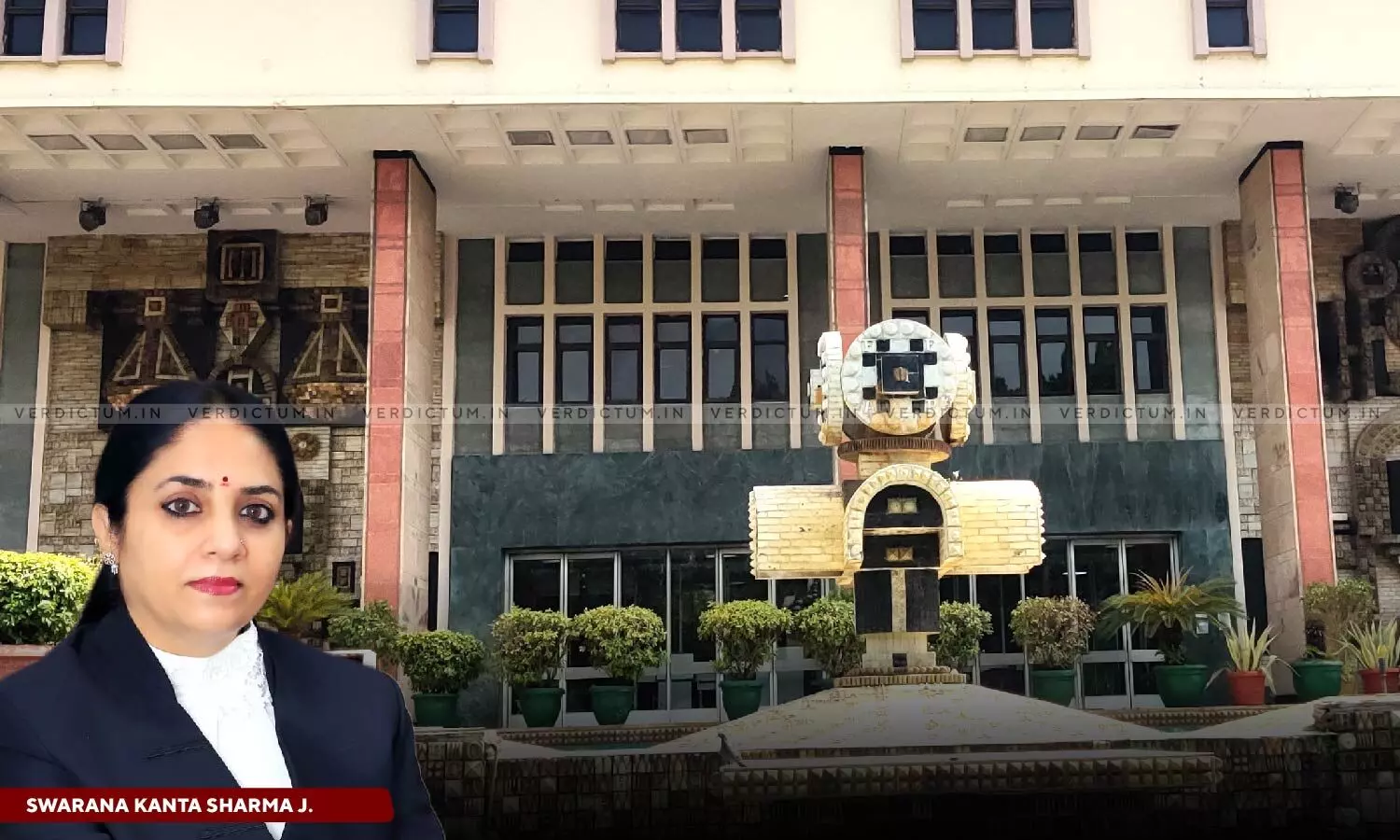
Insulting A Woman And Not Behaving In Chivalrous Manner Does Not Amount To Outraging Her Modesty U/s. 509 IPC: Delhi HC
 |
|The Delhi High Court has recently observed that insulting a woman or being rude or not behaving with her as she would have expected to behave in a chivalrous manner will not be covered under the definition of outraging the modesty of a woman. The observations of the bench came while setting aside an impugned order of a trial court which had held that a prima facie case did exist against the petitioner under Section 509 IPC.
In the pertinent matter, an employee registered a complaint against her employer alleging that he had used “Gandi Bhaasha” (Bad language) and words like “Gandi Aurat” ( Dirty/Bad Woman) in a fight that ensued between them. The bench, however, observed that the language used was not profane or vulgar or sexually colored, but could be termed harsh or derogatory language.
While holding that, a bench of Justice Swarna Kanta Sharma observed, “In a criminal case, even at the stage of charge, the Court has to draw a definition between there being prima facie material for framing charge and there being no material of the nature which will be sufficient to frame charge under the Section 509 IPC by fulfilling its basic ingredients”.
“The word “Gandi Aurat” read in isolation, without context, without any preceding or succeeding words indicating intent to outrage modesty of a woman will not bring these words within the ambit of Section 509 IPC. Had there been any mention of any other words used, context given or any other gesture etc. made accompanying, succeeding or preceding these words, reflecting criminal intent to outrage the modesty of a woman, the outcome of the case would have been different”, the judgment further read.
Advocate K.C. Mittal appeared for the petitioner and PP Manoj Pant appeared for the State.
The Court, then also noted and highlighted the necessity to strike a ‘neutral chord’ while dealing with gender-specific laws.
The Court was of the opinion that while interpreting and applying gender-specific legislation, the approach shouldn’t be biased. Instead, it should be firmly guided by the fundamental principles of criminal jurisprudence ensuring a balanced judicial perspective in line with the legislative intent.
“The mere fact that legislation is designed to address specific gender-related concerns should not be misconstrued as being inherently biased against the opposite gender or being anti-men wherever applicable. To repeat, it is crucial to recognize that gender-specific laws are not meant to be "anti-opposite gender" but rather serve the purpose of addressing unique issues faced by a particular gender”, the judgment read.
The bench also observed in the judgment that the word “dirty” is used in the context of an intangible or tangible thing to mean dirty, and in context of a human being.
“…it may also connote one being unclean, or for the purpose of chiding someone even affectionately as one uses the word “Ganda Baccha”, the bench further noted in the judgment.
Cause Title: Varun Bhatia v. State and Another [Neutral Citation: 2023:DHC:6177]
Click here to read/download the Judgment